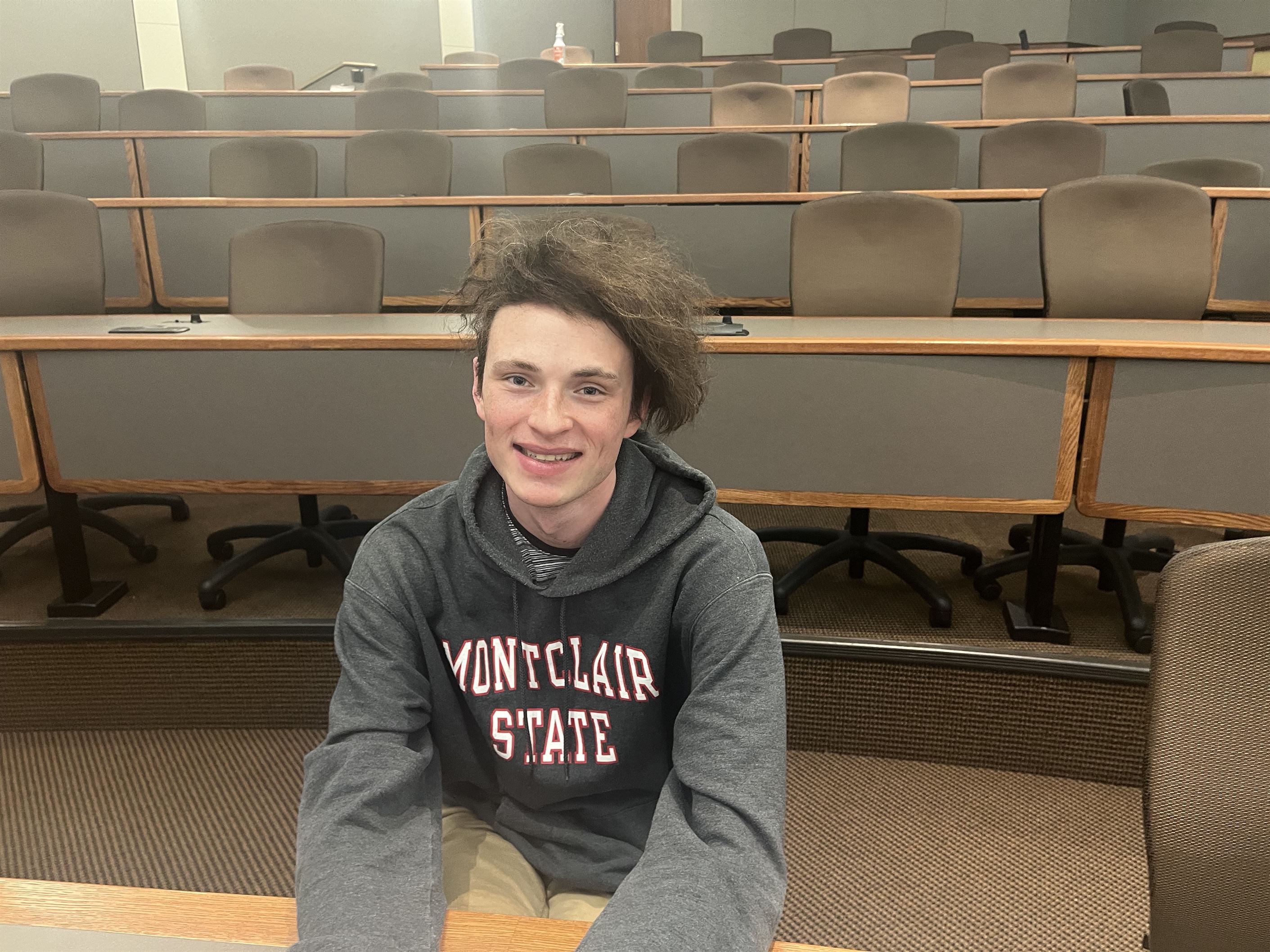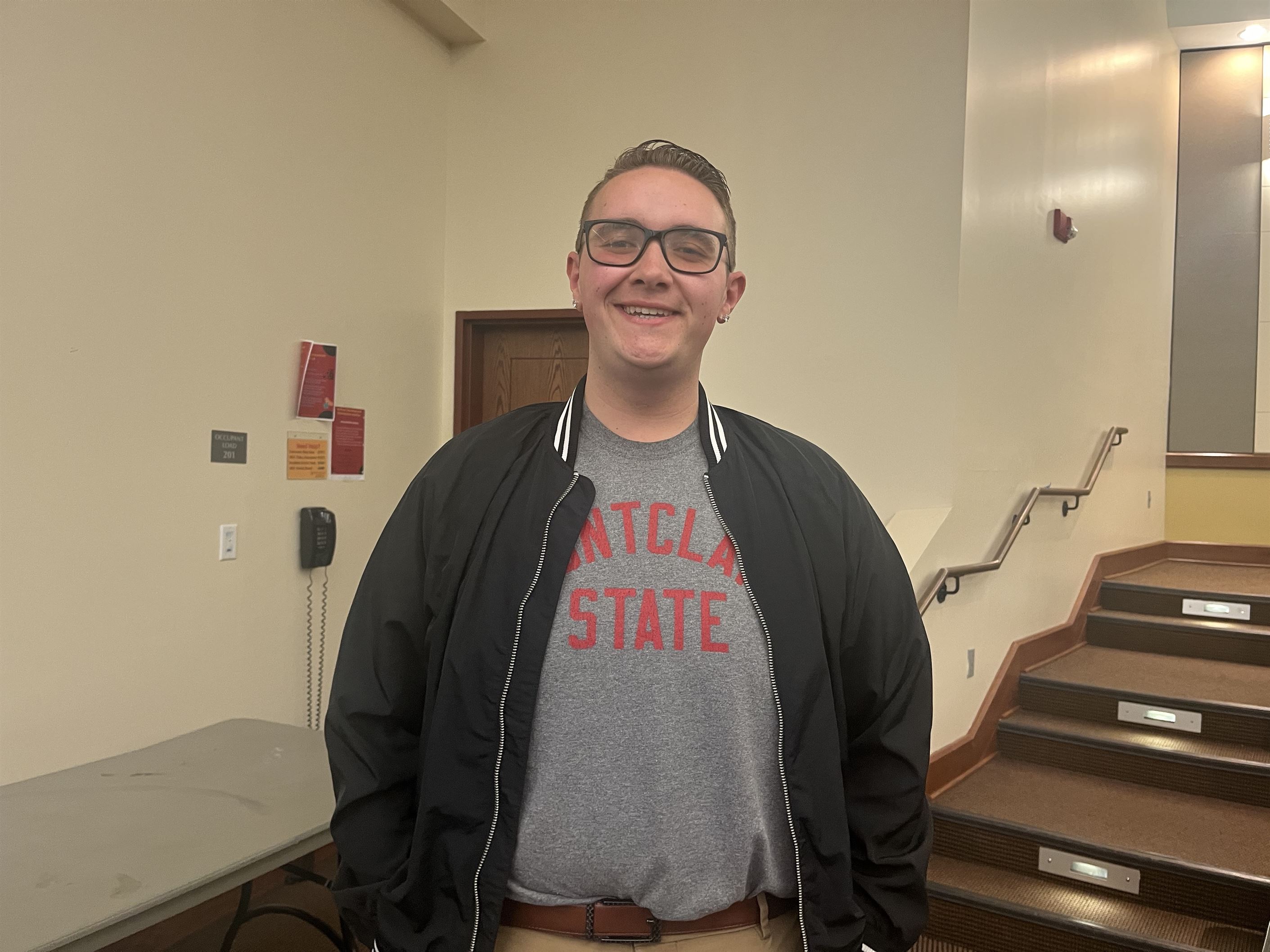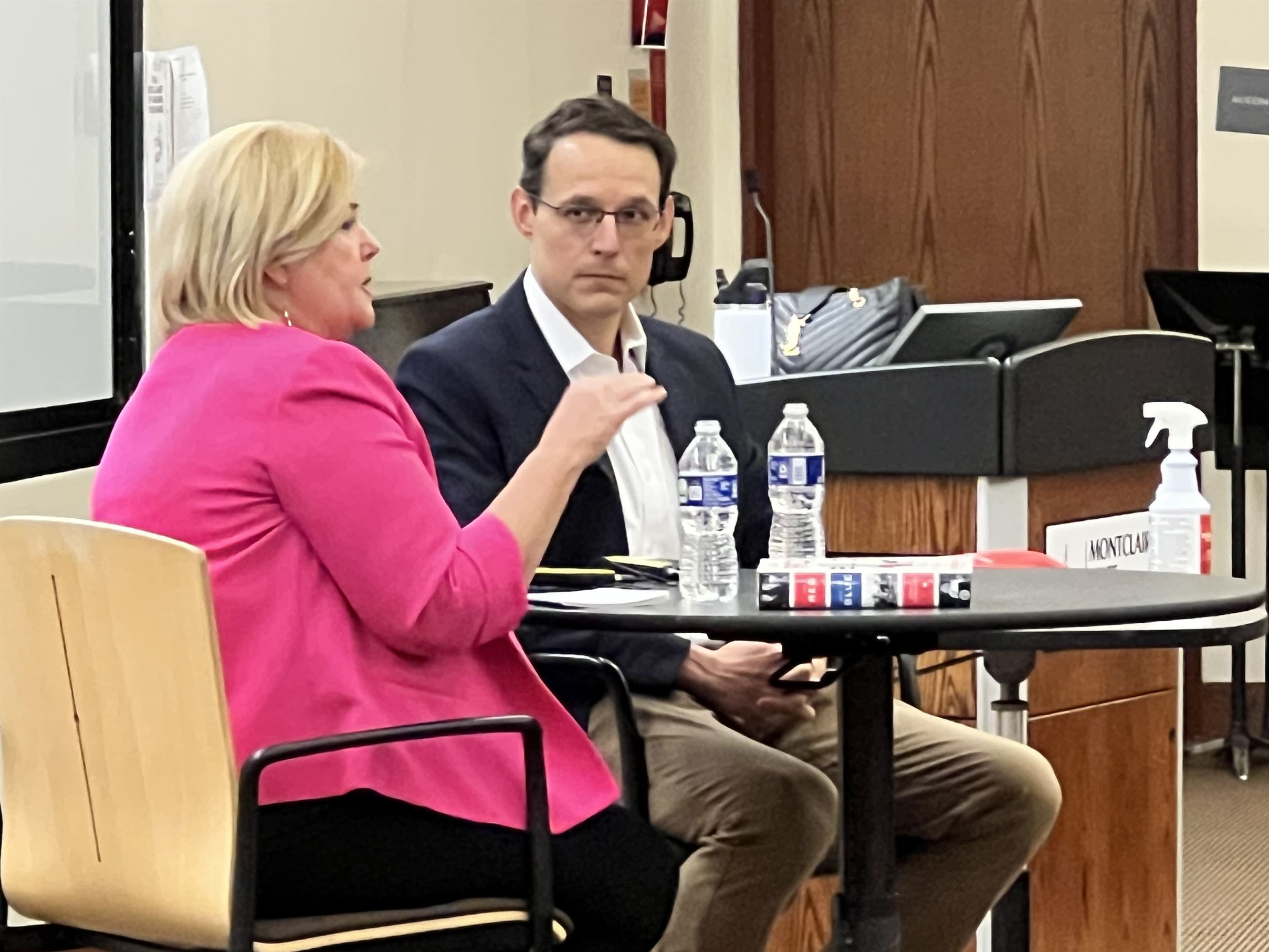As he enters the room, he is met with enthusiastic applause. He is wearing his signature khakis and he cracks a joke about New Jersey traffic while he takes his seat.
Steve Kornacki, a national political correspondent for NBC News & MSNBC, visited Montclair State University as a part of the Political Science and Law Salon Series. Brigid Callahan Harrison, chair of the political science and law department, explained the purpose of the series.
“We have movers and shakers in politics come for events like this to just have a nice kind of informal conversation about both their lives and give advice to students who are interested in pursuing careers similar to theirs, but also what they do in their jobs and obviously all bring some kind of experience or knowledge that people find interesting,” Harrison said.
Kornacki covered a lot of ground during the chat, including his start in media, his current role at MSNBC, the beginnings of polarization in the United States and the state of American politics today.
Kornacki, a Massachusetts native, began his career covering politics in New Jersey for PoliticsNJ.com. He explained how obtaining news through the internet was a novel idea at that time.
“This is going back 20 years here when the idea of a web-only news source was very novel,” Kornacki said. “So when I told people I’ve taken a job with a website, [they said] ‘where can I read it, there’s no print product, no magazine, no newspaper?’ That was really weird to people.”
Despite his initial hesitation, he took the role. He encouraged students to take risks, because you never know where they may lead.
“If there’s any advice there from my standpoint, is that at your age, just starting out, it’s time to take chances and don’t be afraid,” Kornacki said.
Now, Kornacki is most well known for his role at MSNBC. His name is synonymous with big boards, election data and khaki pants. He detailed how he got that role back in 2014.
“I had known since I got to MSNBC in 2012 that was something I would have liked to do, the idea of doing the results, the county maps, all that stuff,” Kornacki said. “The job was taken at that point and it was about two months before the 2014 midterm, Chuck Todd had been doing it on [MSNBC] and he got a job as host of Meet the Press in 2014. So I got a call from my boss and he said, ‘Well, [Todd is] not going to be able to be on [MSNBC] on election night and we need somebody to do the board. Would you be interested?’ And I said, ‘Oh yeah. I think I would be.’”
Kornacki explained what he loves about election nights.
“I love the spectacle, I love watching the numbers start to come in, trying to make sense of patterns, trying to figure out where it’s going, trying to communicate the surprise we invariably see, and you’ll get to a point where we can finally sort of [watch] in slow motion as a picture comes into focus,” Kornacki said.
However, he also said election nights are stressful.
“Every election that goes by I become more and more aware of how much I don’t know and what my blind spots are, and it’s getting more and more and more complicated,” Kornacki said.
Beyond his on-camera work, Kornacki hosts two podcasts called “Article II: Inside Impeachment” and “The Revolution with Steve Kornacki.” He also wrote a book entitled “The Red and the Blue.” Kornacki shared his vast political knowledge with the audience, focusing on the origin of the political polarization that permeates society today.
Kornacki said political polarization was accelerated by Newt Gingrich, who was Speaker of the House from 1995 to 1999.
“What drives Gingrich politically is a sense that there is an out-of-touch liberal elite that has too much sway in major American institutions, cultural institutions, academic institutions, media institutions, a liberal elite whose core values and beliefs are at odds with everyday Americans,” Kornacki said.
Kornacki connected Gingrich’s political mission to the rise of former President Donald Trump.
“Then along comes [Trump], who I don’t think has this grand vision, but [he] connected the Trump style, [his] antics, however you want to define it, he connected with the voters that [Gingrich] had spent 50 years trying to build a coalition out of,” Kornacki said.
Harrison thought the event was a success.
“I’m super pleased,” Harrison said. “I’m happy that so many people had questions, particularly students. I think one of the things that I always find interesting is the advice that people give. And thinking about his career and how the media is changing, I think that that’s something [to keep in mind] for students who are interested in pursuing that kind of career, that they keep themselves open to the idea of taking risks, and perhaps not going for the most conventional route.”
Jacob Goetz, a senior television and digital media major, found several aspects of the event interesting and educational.
“What he had to say about [Gingrich] was really interesting to me and his place in the formation of the Republican Party, and also just the general approach to how party politics has shaped over the years,” Goetz said.

Jacob Goetz, a senior television and digital media major, found several aspects of the event interesting and educational.
Jenna Sundel | The Montclarion
AJ Ford, a senior political science major, said he enjoyed the event as well.
“On MSNBC, you’re gonna see [Kornacki] at the big board, so it’s really cool to see and obviously I’ve listened to his podcasts,” Ford said. “And I haven’t gotten a chance to read his book yet, but I’ll definitely pick that up and just having someone with his understanding of [how] our parties have kind of gotten to where they are, it’s great to hear.”

AJ Ford, a senior political science major, said he enjoyed the event.
Jenna Sundel | The Montclarion



